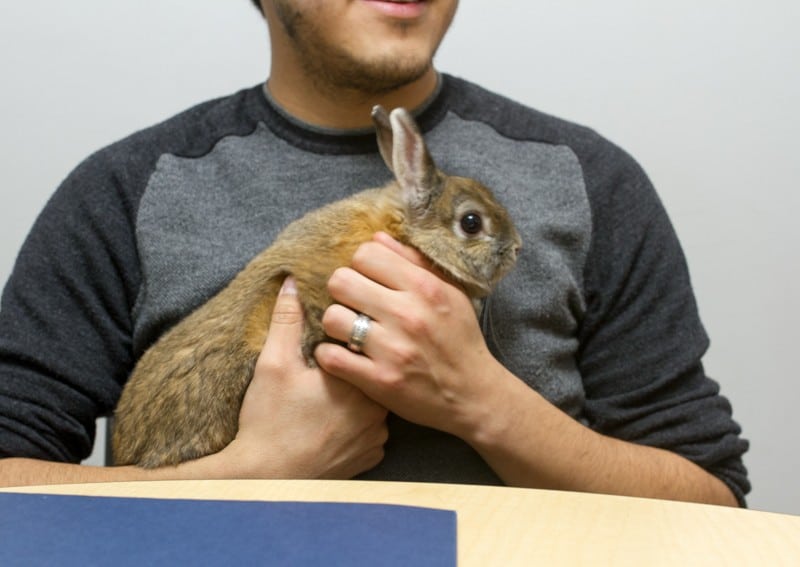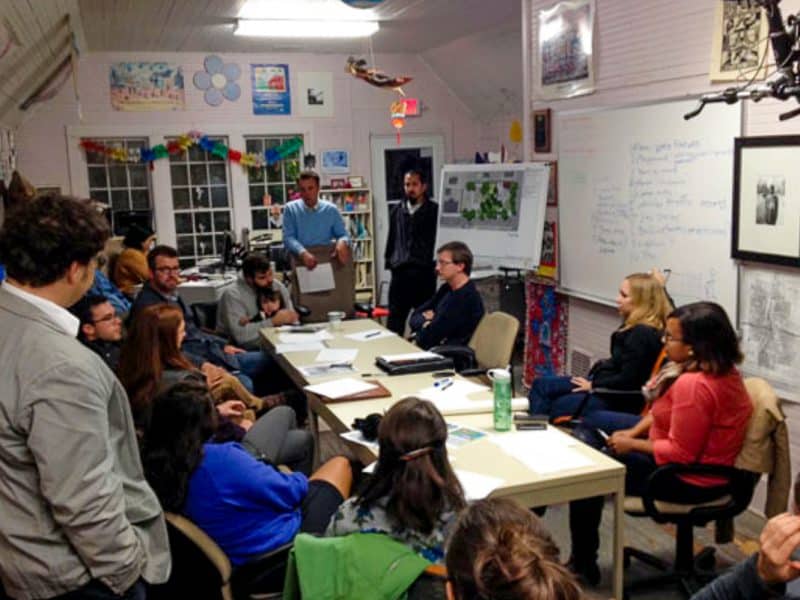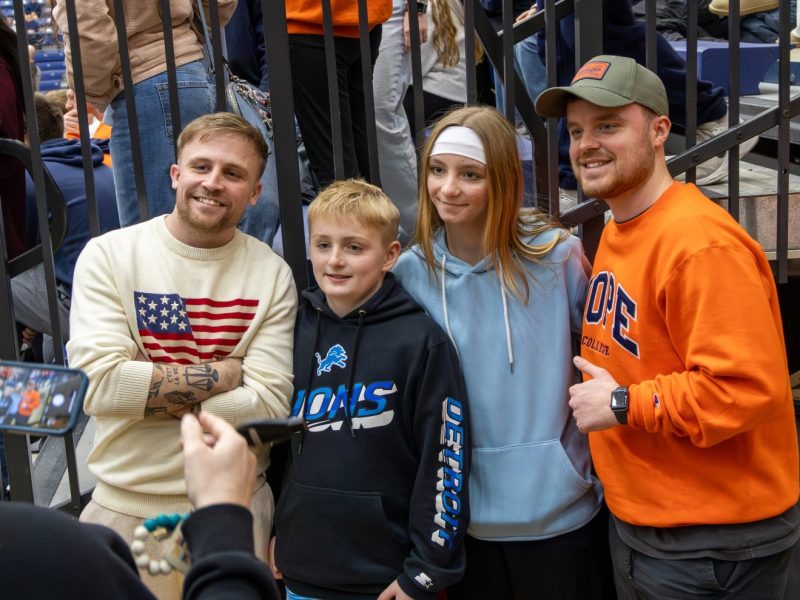Building a major medical center means world-class research: Local scientists make it happen
Here in West Michigan, medical institutions are creating diverse teams and forging new collaborations in research, solidifying the city's evolving role as a leading medical center.
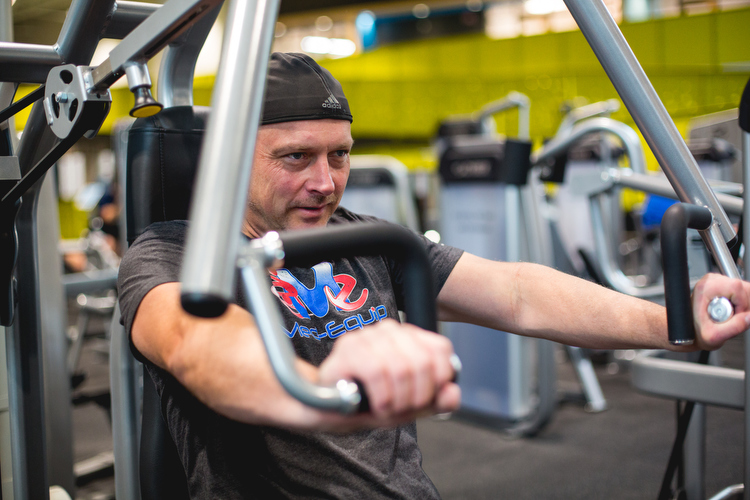
For the past 10 years or so, the rest of the state and country has begun taking notice of Grand Rapids’ rapidly evolving healthcare ecosystem. By doubling down on home-grown talent and collecting doctors and researchers from across the country and the world, Grand Rapids companies, nonprofits, and educational institutions are quickly creating a world-class center for medical knowledge.
And at the heart of medicine is the constant quest for new information. Here in West Michigan, medical institutions are creating diverse teams and forging new collaborations in research, solidifying the city’s evolving role as a leading medical center.
Building a dream team
At Van Andel Research Institute (VARI), the key to groundbreaking research is inviting top researchers from around the world to work in their headquarters in Grand Rapids. “The Van Andel institute is very impressive because they have [an] incredibly high quality of scientists … on par with any major institute in the country,” says Russell “Rusty” Jones, Ph.D., Professor, Center for Cancer and Cell Biology; Program Lead, Metabolic and Nutritional Programming, Center for Cancer and Cell Biology.
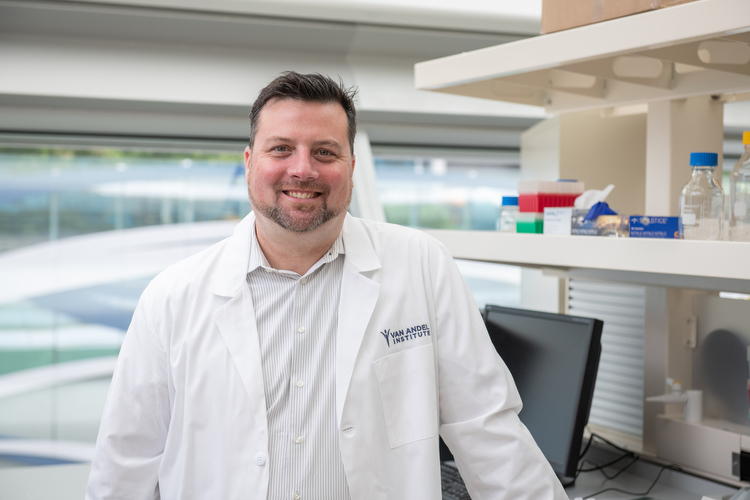
Courted from the Metabolomics Core Facility at Goodman Cancer Research Centre at McGill University in Montreal, Quebec, Jones is one of four new researchers hired to launch VARI’s brand new metabolism and nutrition research program. Jones will team up with Connie Krawczyk, Ph.D, also from McGill University; Adelheid (Heidi) Lempradl, Ph.D. and Andrew Pospisilik, Ph.D. of the Max Planck Institute of Immunobiology and Epigenetics Freiburg, Germany; as well as VARI investigators Brian Haab, Ph.D. and Ning Wu, Ph.D.
Why such a large and extensive team? “We have very distinct areas,” says Jones, noting that each researcher will bring to the table their practiced perspective on cancer, immunology, intergenerational medicine, and diabetics and obesity, respectively. With this diversity, the new program will tackle metabolism and nutrition from many different angles.
Diverse expertise
“We’re basically beginning this program to supply very rigorous scientific study into metabolism and nutrition,” says Jones. “I think many people actually believe these are one in the same … they’re linked but they’re very different.”
How different? Jones breaks it down quite simply, explaining that nutrition is the food we eat, and metabolism is how the body uses and processes that food. For Jones and his team, the metabolism is the “cornerstone of human health,” and is the major factor in development of different diseases. For example, a person with diabetes is unable to control blood glucose levels, which results in changes to their entire body’s metabolism and affects how they process nutrition. And cancer cells actually change cellular metabolism in the body, using nutrients for cell growth.
Processes such as these are at the heart of the VARI team’s research into “how cells change their metabolism in response to different environments,” says Jones. Working together but also within their own separate labs, the team will seek answers to questions like: “How does diet and nutrition affect your long term immune responses?” and “How does diet and exercise training affect your life long term?”
Though the metabolism and nutrition team is just getting started (they all arrived in GR in August), Jones can already see their potential. “I think there’s a really great opportunity to create a concentration of really solid research in metabolism and working in concert with all of the great scientists in the area,” he says.
Real-world application
And in Grand Rapids specifically, Jones and his team have the power to “Translate our ideas into action across the street…[which] requires us working very closely with physicians and doctors,” he says, referring to hospitals like the Helen DeVos Children’s Hospital just steps away on Medical Mile.
With this type of proximity, doctors and researchers can work together to conduct multi-center clinical trials — or testing at multiple locations in which the number and diversity of patients is increased — a greater variety of trials, and access to shared information.
“We can do all the research in the world… if we want to have clinical impact we have to work beyond our walls,” says Jones.
It’s this quest for shared resources that inspired Mary Free Bed Rehabilitation Hospital to partner with Michigan Medicine’s Department of Physical Medicine and Rehabilitation on a new research collaboration focused on patients with spinal cord injuries.
From east to west
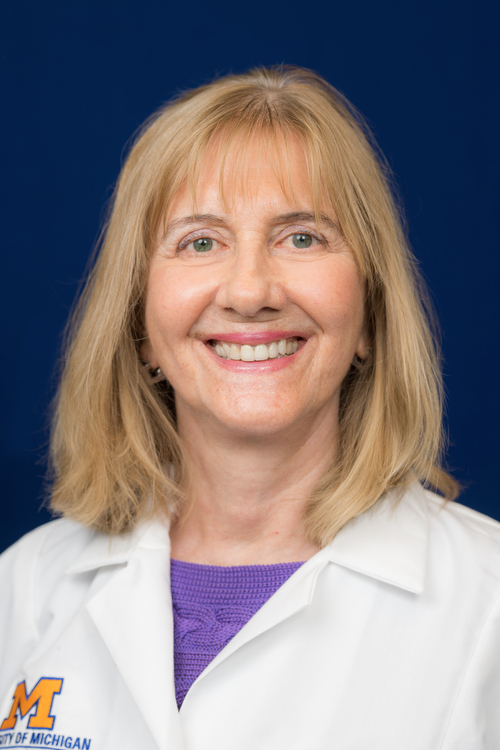
“Not all centers are doing this, but there certainly are a number of centers that begin collaborating with other institutions,” says Denise Tate, Ph.D., professor of physical medicine and rehabilitation at Michigan Medicine and co-director of the Spinal Cord Injury Model Systems. “The research that is being done is much more cost effective … much more feasible because we are jointly serving our patient populations.”
Beginning with a memorandum of understanding that solidified an ongoing partnership between the nonprofit and the university, Mary Free Bed and Michigan will now begin sharing resources and staff in order to more efficiently treat patients who have suffered a spinal cord injury and are living with a subsequent disability.
By teaming up on special projects — like a GR-based investigation of physical activity and quality of life in spinal cord injuries funded by the Craig H. Neilsen Foundation — the team can more efficiently apply for grant money, as well as share expertise and cutting-edge processes.
An unlike many research collaborations, which focus on one particular area for a set amount of time, “We’ve made a commitment for ongoing collaboration in a number of areas, not just one project,” says John Butzer, M.D., director of research and innovation at Mary Free Bed Rehabilitation Hospital.
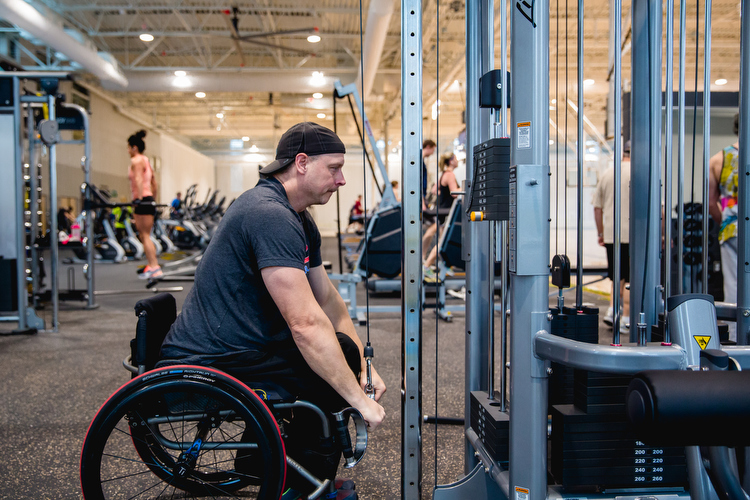
The power of data
Perhaps most importantly, this new group seeks to create a shared database in which information from clinical trials will be stored. Both institutions will have access to data acquired from clinical trials, allowing for more efficiency and speed in bringing new treatments to the patient population.
With this shared data, each facility can also further their training of healthcare professionals in the science of translational medicine — applying research data in treatment of patients in the real world. The collaborative can also work on knowledge translation, or the implementation of newly acquired knowledge in developing treatment protocols, obtaining new equipment, classroom teaching, and coaching. With these two practices, “Advances in research are brought to the bedside much quicker,” says Butzer.
Though advances in medicine can sometimes take up to 17 years after clinical trials to take shape throughout the country, “We think that is way too long and we are working to shorten that,” he adds.
All of this adds up to seeking a better quality of life after a patient suffers a spinal cord injury, which for Tate, with a background in clinical psychology, also includes psycho social issues and quality of life outcomes. For her, the persistent question is: “How can we improve the quality of life of people with disabilities?”, which further solidifies the partnership with Mary Free Bed.
“Mary Free bed is all about taking care of patients,” says Butzer. “We find new methods of treating various diseases that bring better hope and freedom to our patients.”
Expertise at the core
No matter the speciality, be it nutrition and metabolism, spinal cord injuries, or even cancer research, Grand Rapids practitioners and researchers are poised to complete the trifecta that, according to Butzer, defines a growing hub for medicine.
“The reputation of a medical center [relies upon] good patient care, good training of practitioners for tomorrow, and advancing the care itself through solid research,” he says, noting that until now, GR has succeeded at excellent care and training. “If you don’t have all three, you’re never going to be a major medical center,” he adds.
And after 33 years working in medicine in Grand Rapids, Butzer is excited to be on the cusp of a new era for the region. “By emphasizing research, that really puts us up there in the big leagues.”

